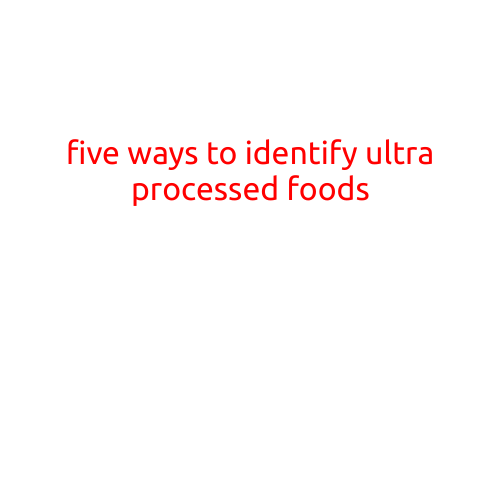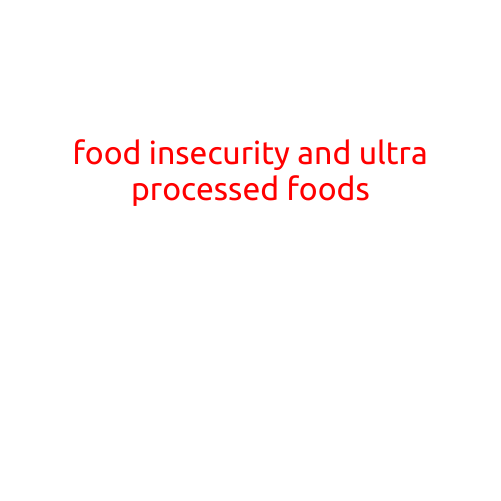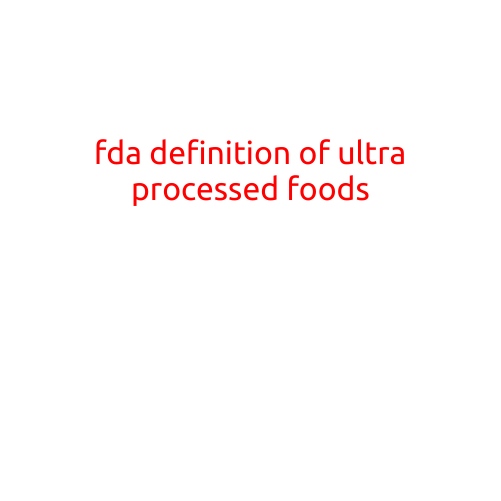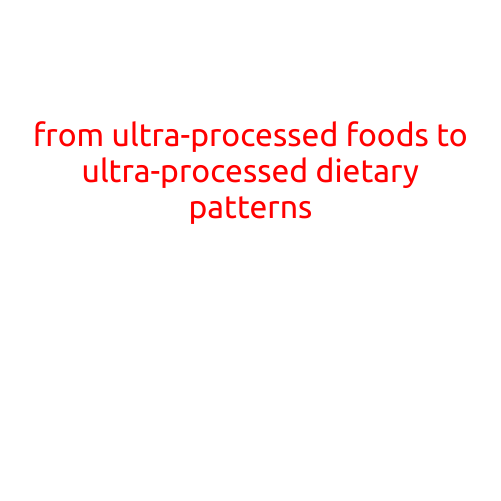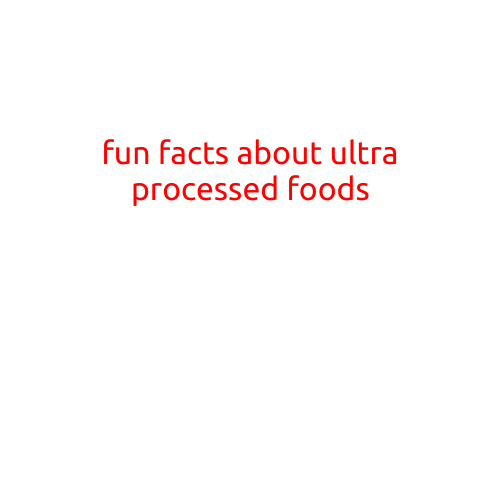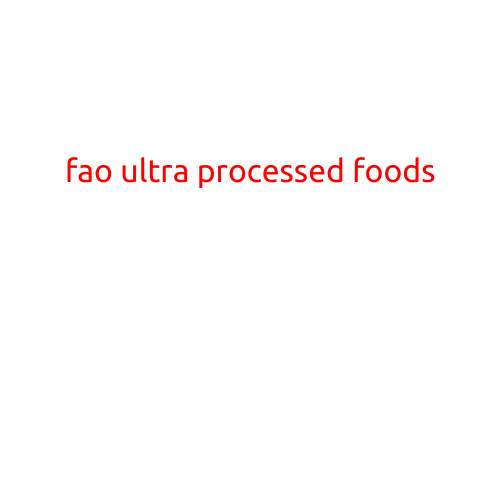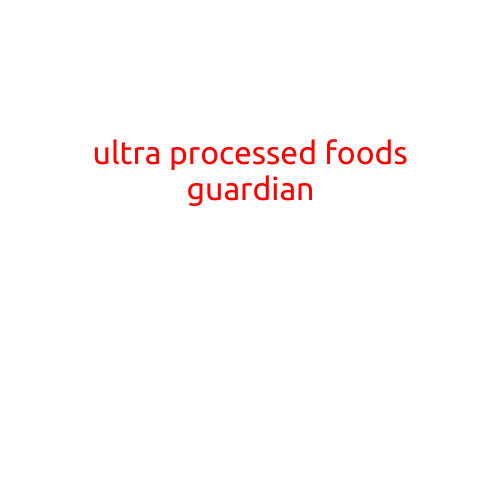
Ultra-Processed Foods: The Guardian of Modern Diet?
In recent years, the term “ultra-processed foods” has become increasingly popular in the health and wellness community. But what does it mean, exactly? And how can it impact our health?
What are Ultra-Processed Foods?
Ultra-processed foods are a category of convenience foods that have been highly transformed from their natural state. They are often created in factories and laboratories, using a combination of ingredients, additives, and processing techniques to produce a wide range of products.
Examples of ultra-processed foods include:
- Sugary snacks like cakes, cookies, and pastries
- Frozen meals like pizza, mac and cheese, and TV dinners
- Bottled sauces and condiments
- Processed meats like hot dogs, sausages, and hamburgers
- Baked goods like bread, bagels, and muffins
These foods are often characterized by their lack of nutritional value, high content of added sugars, salt, and unhealthy fats. They are also typically designed to be highly palatable and addictive, with a combination of sweet, salty, and fatty flavors that can be irresistible to humans.
The Rise of Ultra-Processed Foods in Our Diet
It’s no secret that the modern diet has changed significantly in recent decades. Gone are the days of home-cooked meals made from scratch, with instead a reliance on convenience foods and processed meals.
According to the World Health Organization (WHO), ultra-processed foods now make up around 30% of the average adult’s diet in many industrialized countries. This is a stark contrast to the 5-10% of calories that came from ultra-processed foods just a few decades ago.
The Health Risks of Ultra-Processed Foods
The health risks associated with ultra-processed foods are well-documented. Consuming these foods regularly has been linked to a range of health problems, including:
- Obesity and weight gain
- Type 2 diabetes
- Heart disease
- Certain types of cancer
- Cognitive decline and dementia
This is because ultra-processed foods tend to be high in:
- Added sugars, which can lead to insulin resistance and impaired glucose tolerance
- Sodium, which can increase blood pressure and cardiovascular risk
- Refined carbohydrates, which can cause a spike in blood sugar and insulin levels
- Unhealthy fats, such as trans fats and saturated fats, which can increase the risk of cardiovascular disease
Breaking Free from Ultra-Processed Foods
While it can be challenging to break free from the convenience of ultra-processed foods, there are steps you can take to reduce your consumption and improve your overall health.
Here are a few tips to get you started:
- Start reading labels: Begin to pay attention to the ingredients and nutrition information on the foods you buy. Avoid products with long lists of unpronounceable ingredients and high amounts of added sugars, salt, and unhealthy fats.
- Cook from scratch: Try to prepare meals from scratch using whole, unprocessed ingredients. This can help you avoid the pitfalls of ultra-processed foods and ensure that you’re getting the nutrients your body needs.
- Plan ahead: Meal prep and planning can be a great way to reduce your reliance on ultra-processed foods. Try setting aside a few hours on the weekend to prepare healthy meals for the week ahead.
- Seek support: Don’t be afraid to ask for help and support from friends, family, or a healthcare professional if you’re struggling to break free from ultra-processed foods.
Conclusion
The rise of ultra-processed foods in our diet is a concerning trend that requires our attention and action. By understanding the characteristics and health risks associated with these foods, we can take steps to reduce our consumption and improve our overall health and well-being.
Remember, making small changes to our diet can add up over time, and every little bit counts. By prioritizing whole, unprocessed foods and being mindful of our eating habits, we can take back control of our health and create a healthier, more sustainable relationship with food.
